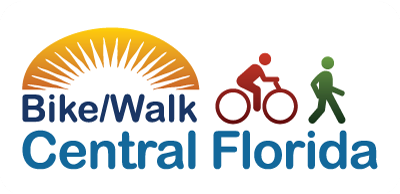This Sunday, March 8, we spring forward and move the clocks one hour ahead. Sometimes it’s hard to put one’s Best Foot Forward if the morning is a groggy haze, because you’ve lost an hour.
Evidence suggests changing clocks to Daylight Saving Time in the spring and to Standard Time in the fall has an impact to people’s health. Check out these tips to help your body adjust better.
One thing is for sure, it’ll certainly change up the morning and evening environment on Monday, March 9 as we walk, bike, drive or use transit. In the morning, expect it to be darker for now. In the evening, and going into the summer months, it’ll be lighter, later.
This poses potential hazards for pedestrians and other transportation users, including children on their way to school in the morning. Data collected by the Florida Department of Transportation (FDOT), using Orange County as an example, shows that March is a dangerous month. The other is in the fall, also during the time the clocks change.

Photo: FDOT research; Alert Today Florida high visibility enforcement currently underway
Bottom line is, everyone needs to take a breath, get their bearings and slow down.
If you’re driving:
- During hours of darkness, give yourself more space to see what’s ahead and to react
- Budget some extra time, especially during the early morning commute
- Avoid distractions
- Before making any right turns, look to your right for any pedestrians that are crossing the road.
Additionally, pedestrians should take the following steps to increase safety:
- Pay attention while walking, especially near crosswalks
- Wear bright colors or reflective clothing before sunrise, dusk and night; use your cell phone flashlight when crossing the road to be more visibile
- Walk on the sidewalk or walk facing traffic if there are no sidewalks
- Try and make eye contact with a driver, prior to crossing
- Cross at proper locations at the proper time.
As the old saying goes, “time flies.” And, as time passes, we’ll eventually adjust to Daylight Saving Time. Together, let’s all get through “spring forward”, safely.

